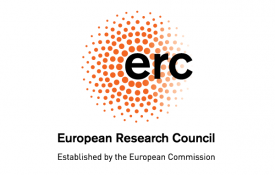-
We Know How to Curb the Pandemic. How Do We Make People Listen?
At this point, we have all the scientific information we need in order to prevent the surgings of the coronavirus: Avoid gathering indoors with people from outside your household, keep physically apart from others, wear a mask, wash your hands often. Among those who can follow these precautions — a lot of people, as policymakers should recognize, can’t afford to — too many are still disregarding public health advice. A recent report by researchers from Northeastern University and elsewhere found that the number of Americans heeding most recommendations has dropped steadily since April.
-
Despite Covid-19, Older People Are Still Happier
APS Member/Author: Alison Gopnik As we get older we get slower, creakier and stiffer—and a lot happier. This might seem surprising, but it’s one of the most robust results in psychology, and it’s true regardless of income, class or culture. In our 70s and 80s, we are happier than when we were strong and beautiful 20-year-olds. There are a couple of theories about why this is. We may get better at avoiding stressful situations—we figure out how to dodge that tense work meeting or family squabble. Or there may be something about aging that makes it easier to tolerate stress, even when we can’t avoid it. ...
-
Citizens Versus the Internet: Confronting Digital Challenges With Cognitive Tools
Psychological Science in the Public Interest (Volume 21, Number 3)Read the Full Text (PDF, HTML) The Internet is an indispensable and global virtual environment in which people constantly communicate, seek information, and make decisions. The architecture of this digital environment influences people’s interactions with it. Despite many advantages of this architecture, it is also responsible for some negative outcomes, such as the spread of misinformation, rising incivility in online interactions, the facilitation of ideological extremisms, and a decline in decision autonomy.
-
AAAS Names 10 Psychological Scientists as 2020 Fellows
The American Association for the Advancement of Science has included eight APS members and two APS Fellows in its election of 489 AAAS members as 2020 Fellows. Election as an AAAS Fellow honors individuals whose efforts on behalf of the advancement of science and its applications in service to society have distinguished them among their peers and colleagues. The 10 psychological scientists listed here constitute all but three of the individuals in the Section on Psychology. APS Members: Peter R.
-

Learn How to Apply for European Research Council Grants
The European Research Council (ERC) has guides available to help inform researchers interested in grant funding on how to prepare their proposals for submission.
-
Grin and Bear It: A Smile or Grimace May Reduce Needle Injection Pain, UC Irvine Researcher Shows
UC Irvine has good news for the 50 million Americans who are afraid of needles. In a recently published paper, UC Irvine researchers found that simply smiling or grimacing can significantly reduce pain from needle injections. The researchers also found that a smile can reduce the stress of a needle injection and lower an individual’s heart rate. ...

